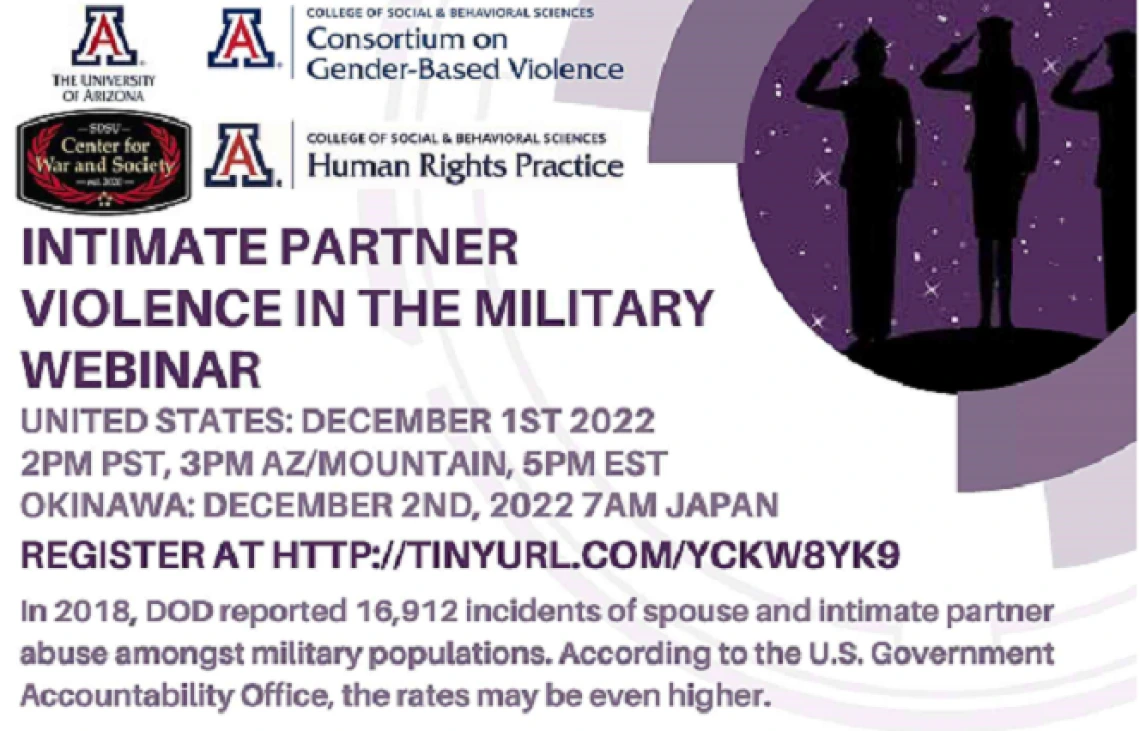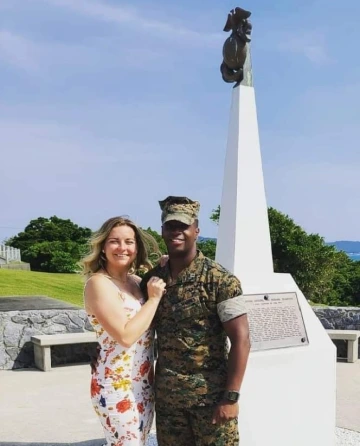“Intimate Partner Violence in the Military,” by Lauren Kae Williams

For her Human Rights Practice Program Capstone Project, Lauren Kae Williams organized, hosted and moderated a webinar panel covering Intimate Partner Violence (IPV) in the military. After putting together this webinar and having the experience of being a panel moderator, Lauren feels that she has gained extensive knowledge on IPV in the military, the different communities that are invested in this issue and how they each play a part in the ways IPV is viewed and handled. Here, Lauren provides some reflections on the experience.
I knew that I wanted my Capstone to encompass the issue of Intimate Partner Violence (IPV) in the military, I just didn’t know how to cover such a big and important topic that no one wants to go on record about. Growing up in a military town, I always had a negative connotation with the military and anyone associated with the military. Both of my grandpas had served in one way or another, but as a girl growing up in San Diego, I was never associated with Military life until my best friend was in a relationship with a Marine.

Lauren with her husband in Okinawa, Japan
My image of military went from negative to repulsed. Not only did he treat her badly from the beginning, after they got married he fulfilled every stereotype of being a controlling abusive drunk. Watching their relationship was like being on a roller coaster, one that I would never want to be on. Watching her live through this was so hard on me and after six years of having to listen to the abuse, I could not sit back and listen to my best friend suffer another minute. Since I was young, I have always been passionate about standing up and speaking up for those whom have lost their voice. Growing up in a home where domestic violence took place to then being sexually assaulted in high school, I always knew that I wanted to work alongside other women because each one of us deserves justice, equity and respect.
I met my husband in 2018 thinking he was a government contractor, like me. Once we got to talking and I learned that he was an officer in the Marine Corps. This was off-putting at first, but I decided to meet him. We have been inseparable ever since. Three weeks after secretly eloping, my husband got orders to Okinawa, Japan. We have been living in Okinawa since March of 2020 when Covid-19 shut everything down. He is completely supportive of me, my career, my education and my dreams, and that is why I felt drawn and encouraged to research IPV in the military for my Capstone project.
Living overseas as a military dependent is the hardest thing I have ever had to do, and I live in a safe and supportive home. This really got me thinking what other dependents have had to go through living overseas during a pandemic and possibly in an abusive home, what resources are available to them? Who do they have to turn to?
This is what motivated me to research, organize and moderate this webinar: I wanted to spread the word to active duty, their dependents, and the general public about the problems many are facing, and what the military has put in place to help. This Capstone really pushed me outside of my comfort zone and got others in the military community thinking and talking about a taboo topic and possible solutions for prevention. I am very proud with what my Capstone produced and I cannot wait to continue to be a part of this fight in our next duty station this year.

